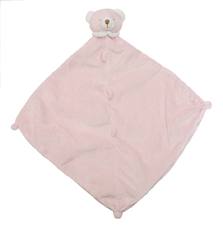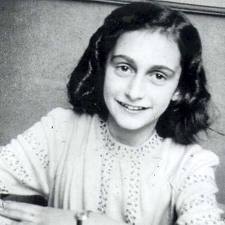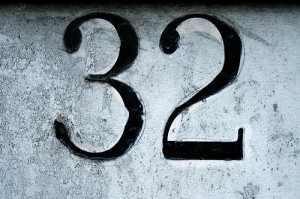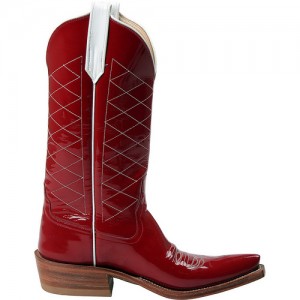
When you want to dig deep into your past and unearth essential truths, what do you do if you’re only eight years old? My daughter just wrote the mini personal essay below, about the day after she was born. No pseudonyms or composite characters were used. Some of the facts, however, may be secondhand or slightly anthropomorphized. Stay tuned for the next installments, backstories about each plush animal she has ever loved, hated, or remained completely indifferent about.
Blanket Bear was old, the oldest resident in Ella’s toybox, and all the toys respected her for it. The day after Ella was born, Blanket Bear had come, a gift from Aunt Mary. Blanket Bear, who had always shown great affection for her girl, was seldom taken out of the toybox. She had all the other stuffed animals to play with, so you shouldn’t judge Ella too harshly. Blanket Bear will never forget Ella’s face when she arrived: so peaceful. Her mother unwrapped her box and gently set Blanket Bear down into the crib. Ella didn’t wake up, only circled her hand around her. Blanket Bear was one of Ella’s comforts, more than she’ll ever realize. Just knowing that Blanket Bear is there is a certain consolation, even now. You don’t check to see if your heart is beating. It just is. Just like Blanket Bear, you take it for granted, but that doesn’t make it any less necessary. Blanket Bear or your heart.
Reading Anne: Lessons on Bloody War and Underwear
“The Nazis are good now,” my eight-year-old daughter Ella half asked, half said.
“No, the Nazis are still bad. But the Germans are good.”
“That’s what I meant,” she said.
World War II was still an abstraction to her. It didn’t have the human connection that would make it real. It was time to read Anne Frank.
 We finished The Diary of a Young Girl last night, and although the book is so famous it has almost become a cliché, its painful, hopeful beauty startled me. I expected to have to explain words like D-Day and Gestapo, to tell Ella about the horrors of Auchwitz and the evils of anti-Semitism. But I didn’t realize I would have to teach her about puberty.
We finished The Diary of a Young Girl last night, and although the book is so famous it has almost become a cliché, its painful, hopeful beauty startled me. I expected to have to explain words like D-Day and Gestapo, to tell Ella about the horrors of Auchwitz and the evils of anti-Semitism. But I didn’t realize I would have to teach her about puberty.
Anne lived in the Secret Annexe from the ages of twelve to fifteen, and the timing of her period is a frequent topic. (“What’s a period?” Ella asked, in the same breath as “What’s an invasion?”) Anne is mostly cheerful and even keeled, but she also becomes a rebellious teenager, writing a letter to father saying that she is responsible to no one and will no longer obey him.
In our minds, Anne will always be a teenager, because her life was cut short. Thanks to her book, both my daughter and I grew up a little bit, ourselves.
Why Kids Shouldn’t Read Grown-Up Books—Or Maybe They Should

Yesterday I was at the public library with my eight-year-old daughter, Ella, looking for information on French culture for a school report. The librarian found one book on the juvenile shelves then gave us a call number for a book in the adult section. Ella wanted to read the adult book immediately, so we installed ourselves around the only empty table in the children’s section and she opened the book to the middle. “I don’t know why this was in the grown-up section,” Ella said.
“Because it’s for grown-ups,” I said. Although I wondered, too—for about thirty seconds.
Because the next thing Ella said was: “What is A-B-O-R-T-I-O-N?
“What?” I said. Not that I couldn’t spell.
“ABORTION!” Ella shouted, as if my only problem was that I couldn’t hear. All heads—from toddlers to tweens, their parents, and every librarian—turned to see what I would say. Or maybe they were just wondering what kind of mother would let her eight-year-old read a book about abortion.
I pulled the book to my side of the table. She had opened it to the chapter on “Courtship and Marriage” and was reading about how changing views on the Catholic Church in France have affected abortion practices and therefore birth rates. “That’s why this book is for grown-ups,” I said.
“But what does abortion mean?” she persisted.
“I don’t want to tell you.” Those were my exact words, juvenile and stubborn, like a playground taunt. Ella pouted, of course now more curious than ever. I scooped up the book and told her it was time to go home.
But why didn’t I tell her? I don’t think it was just because it seemed like my entire town was watching or that I was afraid the two- and three-year-olds would look up from their Very Hungry Caterpillars and become prematurely sex-starved.
Maybe I didn’t tell her because the word means so many different things to so many different people. But if I don’t provide Ella with my version, she’ll fill the void with rumor and misinformation.
She’s bound to hear the word during the presidential campaign. I remember canvassing in my neighborhood for local and national politicians and hearing some people tell me, from behind their screen doors, that abortion was the one issue they considered when choosing a candidate. I sometimes take Ella canvassing with me, and I don’t want her to have abortion explained to her by angry Tea Partiers.
I don’t remember explaining abortion to my son, since it fell to my husband to give him the “sex talk.” What I do recall is discussing the book Freakonomics with my son when he was thirteen, including the chapter that explains the drop in crime rate as a link to Roe versus Wade (fewer crimes were committed because fewer criminals had been born).
No matter what side of the political spectrum you’re are on, abortion is not a happy subject to talk to your children about. Part of me is sad that I can’t keep Ella innocent of it forever. But the other part of me realizes it’s my duty to keep her informed. Now if I could just figure out what I’m going to say.
To Paris, with Love and Red Cowboy Boots
Are we in Paris, France or Paris, Texas? My essay in The Nervous Breakdown ponders the way we never know how American we are until we leave the country.
Here is the link:
The Nervous Breakdown
Thirty-two

The other day I went to a birthday party for a friend. That morning, I told my son about it. “She’s turning thirty-two,” I said. “So young.”
Predictably, he said, “Seems pretty old to me.” To a seventeen-year-old, when you’re thirty-two you’re practically in your grave.
I know how he feels, actually.
Thirty-two was the year when I felt the oldest, when every day my mortality hit me more keenly than it ever has before or since. It is the age my father was when he died, and it still seems strange that I should live to be older than he ever will be.
